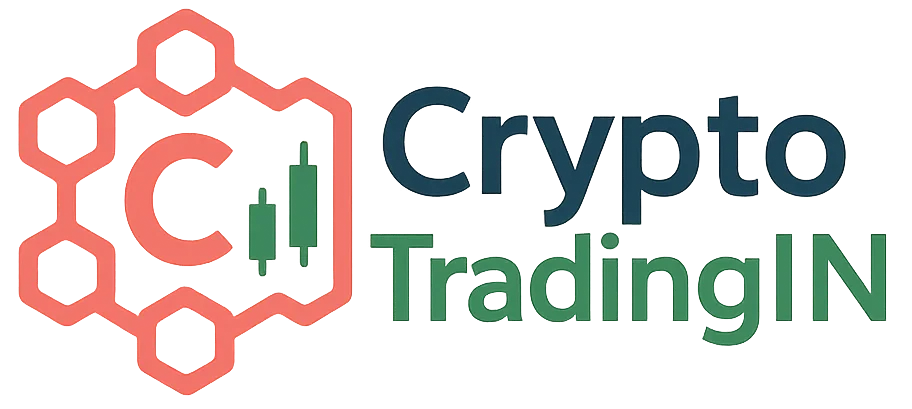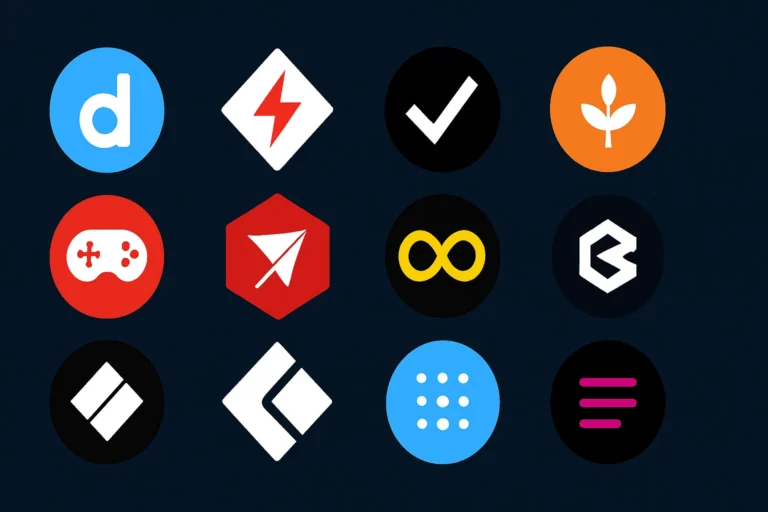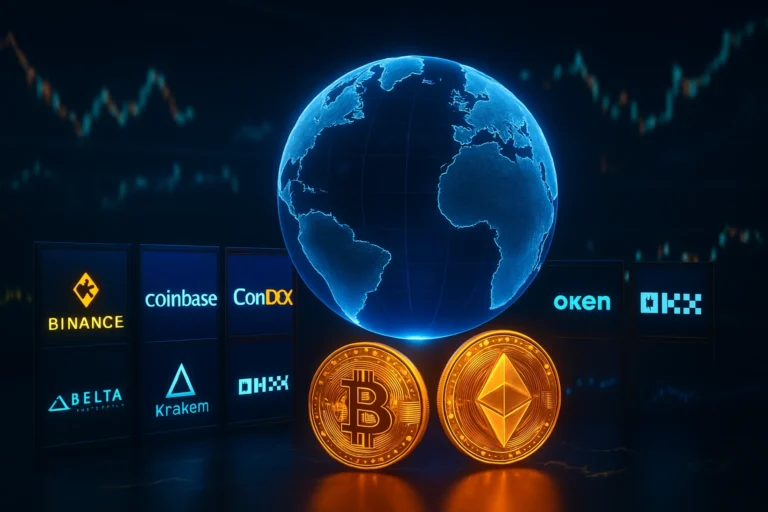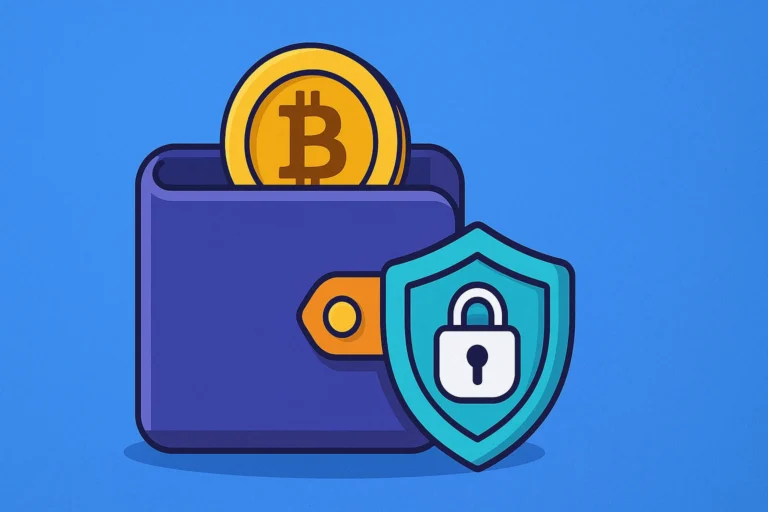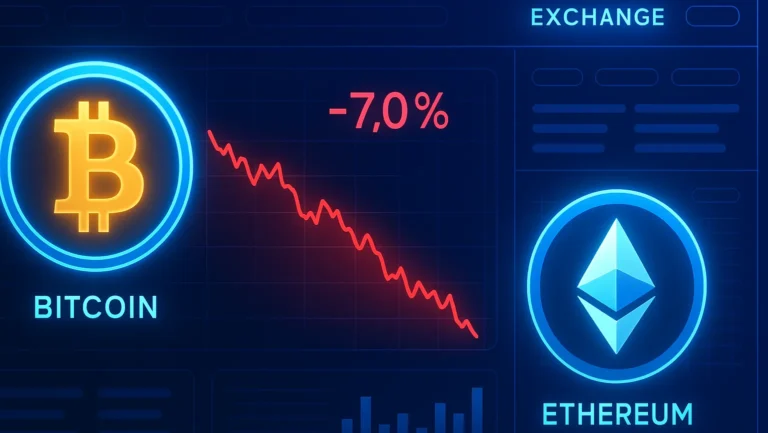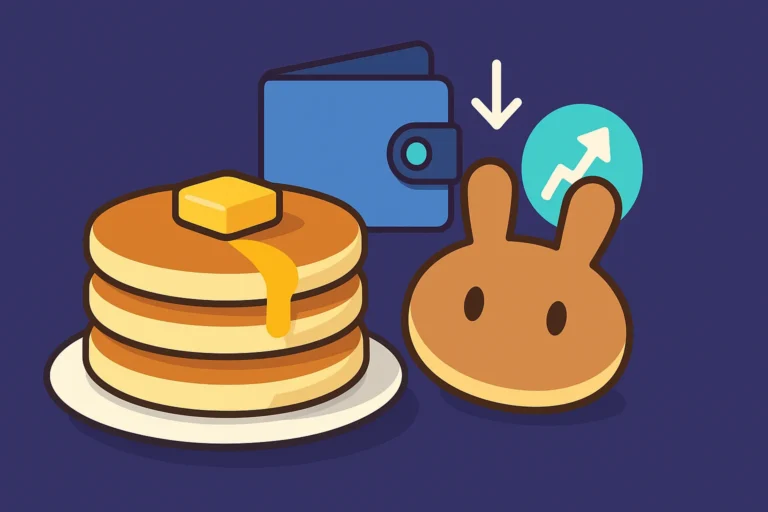10 Best Decentralized Exchanges (DEXs): Future of Crypto Trading
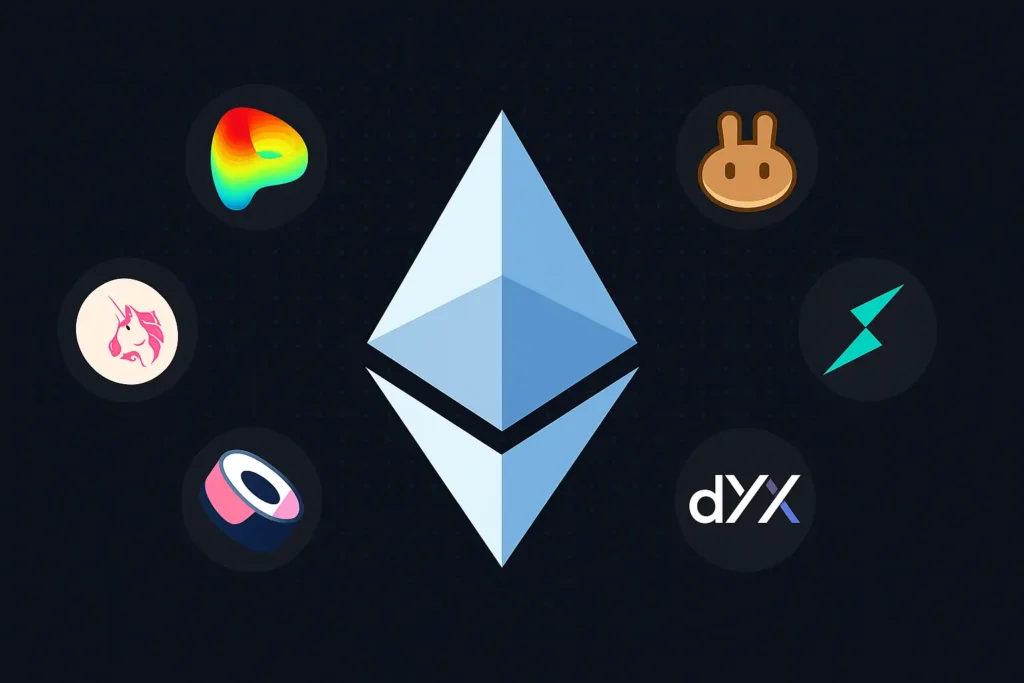
Best Decentralized Exchanges (DEXs)
In the ever-evolving world of cryptocurrency, one of the most revolutionary developments has been the rise of Decentralized Exchanges (DEXs).
Unlike centralized platforms such as Binance or Coinbase, DEXs empower users by allowing them to trade directly from their wallets, without the need for intermediaries.
In this post takes a comprehensive look at what DEXs are, how they work, why they’re important, who should use them, where they are most popular, and a detailed review of the best decentralized exchanges (DEXs) in 2025.
What are Decentralized Exchanges (DEXs)?
A Decentralized Exchange (DEX) is a type of cryptocurrency exchange that operates without a central authority. Instead of relying on a third-party intermediary, trades are executed directly between users through smart contracts.
These contracts live on blockchain networks (mostly Ethereum and its layer-2 solutions) and are self-executing once conditions are met.
Unlike centralized exchanges (CEXs), DEXs don’t require users to deposit their funds into the platform. Instead, users retain control over their private keys and trade directly from their personal wallets, promoting transparency, privacy, and security.
List Of Best Decentralized Exchanges
- Uniswap(v4)
- Curve Finance
- Balancer
- PancakeSwap
- SushiSwap
- 1inch (Aggregator)
- GMX
- dYdX (v4)
- THORChain
- Trader Joe
Best Decentralized Exchanges (DEXs) in 2025
Here is a detailed review of the top-performing and most trusted DEXs of the year:
1. Uniswap (v4)
- Blockchain: Ethereum, Arbitrum, Optimism, Base
- Key Features: Concentrated liquidity, limit orders, plugin-based extensibility
- Ideal For: High-volume traders, DeFi developers, liquidity providers
2. Curve Finance
- Blockchain: Ethereum, Fantom, Polygon, Arbitrum
- Key Features: Stablecoin trading, veCRV yield boosting, low slippage
- Ideal For: Stablecoin traders, DAO treasuries
3. Balancer
- Blockchain: Ethereum + L2s
- Key Features: Custom weighted pools, smart order routing
- Ideal For: Advanced LPs, portfolio managers
4. PancakeSwap
- Blockchain: BNB Chain, Ethereum
- Key Features: Staking, farming, IFOs, NFTs
- Ideal For: Beginners, retail traders
5. SushiSwap
- Blockchain: Multichain
- Key Features: Farming, lending (Kashi), multichain support
- Ideal For: Community-driven traders
6. 1inch (Aggregator)
- Blockchain: Ethereum, Arbitrum, BNB Chain, more
- Key Features: Best trade execution across 100+ DEXs
- Ideal For: Smart traders, arbitrageurs
7. GMX
- Blockchain: Arbitrum, Avalanche
- Key Features: Decentralized perpetuals, GLP token
- Ideal For: Leverage traders, yield seekers
8. dYdX (v4)
- Blockchain: Cosmos
- Key Features: Order book DEX for perpetuals
- Ideal For: Pro traders, HFT users
9. THORChain
- Blockchain: Native L1
- Key Features: Native BTC, ETH, cross-chain swaps
- Ideal For: Cross-chain maxis
10. Trader Joe
- Blockchain: Avalanche, Arbitrum, BNB
- Key Features: Liquidity Book AMM, NFT marketplace
- Ideal For: Avalanche users, NFT fans
Who Should Use a DEX?
- Crypto Enthusiasts & Traders: Those who prioritize privacy and want full control over their assets.
- Yield Farmers & Liquidity Providers: Users looking to earn yield on their holdings by providing liquidity to trading pools.
- Developers: Programmers interested in building on top of open DeFi infrastructure.
- Geographically Restricted Users: People in countries with limited access to CEXs can use DEXs freely.
However, users should have some basic understanding of wallets, blockchain transactions, and gas fees, as DEXs typically require more technical proficiency than CEXs.
How DEXs Differ From Centralized Exchanges
Let’s break it down. On centralized exchanges (CEXs) like Binance or Coinbase, you deposit your crypto into an account controlled by the platform.
They hold your keys, they execute the trades, and they can freeze your funds. Sure, you get a slick interface, but at what cost?
With a DEX, you are in full control. You never lose custody of your tokens. You simply connect your wallet, approve a transaction, and boom, you’ve made a trade.
No sign-ups, no passwords, no gatekeepers. Everything happens through your Web3 wallet, like MetaMask or Trust Wallet.
Also, centralized exchanges are prime targets for hackers. Billions have been stolen over the years because these platforms are big, juicy honeypots.
With DEXs, that risk is dramatically lower since there’s no central storage of funds. The only vulnerability lies in the smart contract itself, so choosing a reputable DEX with audited code is key.
Read: Best Crypto Trading Platforms
Key Features of DEXs:
- Permissionless access: Anyone with a crypto wallet and internet connection can trade.
- No KYC (Know Your Customer): Most DEXs do not require identity verification.
- Non-custodial: Users maintain control over their funds.
- Open-source: Many DEXs are built using transparent and auditable code.
- Privacy: Since most DEXs do not require KYC, users can trade anonymously.
- Security: Users maintain control of their private keys, reducing the risk of exchange hacks.
- Access to New Tokens: DEXs often list tokens before CEXs, giving early access to new projects.
- Lower Fees (sometimes): While network fees still apply, DEXs often have lower trading fees than their centralized counterparts.
- Decentralization: They embody the spirit of decentralization, reducing reliance on centralized systems.
Check also– (1) Trading journal, (2) Lot size calculator.
In Which Countries Are DEXs Popular?
DEXs are borderless and operate globally. However, their adoption is higher in:
- United States: Despite regulatory concerns, DeFi has a strong developer and user base.
- Europe: Countries like Germany, Netherlands, and Switzerland are active in DeFi innovation.
- Southeast Asia: Countries like Vietnam and the Philippines show rapid growth in crypto adoption.
- Latin America: In countries like Argentina and Venezuela, DEXs help users avoid local currency inflation.
- Africa: Nigeria and Kenya see strong usage as DEXs offer alternatives to traditional banking systems.
Note: While DEXs are often used in regions with restrictive banking systems, they may still be subject to national regulations.
Challenges of Using DEXs
Despite their advantages, DEXs come with their own set of challenges:
- Gas Fees: On chains like Ethereum, gas costs can be high.
- Slippage: Thin liquidity on small tokens can lead to price slippage.
- User Experience: Interfaces are often less polished than centralized apps.
- Security Risks: Smart contract bugs or rug pulls in less-audited DEXs can cause losses.
The Future of DEXs
As Layer-2 solutions and cross-chain protocols mature, DEXs are expected to:
- Offer faster, cheaper, and more scalable trading experiences
- Integrate more AI-based order routing and real-time analytics
- Evolve toward hybrid models combining the best of CEXs and DEXs
Mass adoption will likely come as DEXs improve usability, education, and regulatory clarity.
Benefits of Using Decentralized Exchanges
Security and Control
This is where DEXs shine the brightest. You, and only you, hold the keys to your funds. There’s no third-party risk, no chance of your funds being frozen or stolen by an exchange going bankrupt or getting hacked. Remember FTX? That’s the nightmare scenario DEXs were born to prevent.
In a DEX environment, the trade execution happens directly from your wallet. Smart contracts handle the logic, not some shadowy exchange backend. If you’re serious about sovereignty over your crypto assets, DEXs are the only way to go.
Privacy and Anonymity
Let’s be real, privacy is a big deal in crypto. With centralized exchanges, you need to submit personal information to comply with KYC rules. That data? It’s stored, shared, and sometimes even leaked.
Decentralized exchanges require zero personal data. You don’t need an account or even an email. All you need is a wallet and a few tokens. This makes DEXs attractive to users in countries with strict capital controls or oppressive regimes, and also to privacy-conscious traders everywhere.
No Need for KYC
KYC slows everything down. If you have ever waited days just to get verified on a CEX, you know the pain. With DEXs, there’s none of that. The whole system is permissionless, allowing anyone to trade from anywhere in the world instantly.
This is huge for accessibility. It opens the doors to millions of unbanked or underbanked people globally. It also supports the core ethos of crypto, financial freedom without oversight or barriers.
Conclusion
Decentralized Exchanges are no longer just a niche for crypto geeks- they’re becoming the foundation of the new financial internet.
By empowering individuals with full control over their assets and removing centralized choke points, DEXs are pushing the crypto space toward its original vision: trustless, open, and borderless finance.
Whether you’re a trader looking for new opportunities, a developer building on DeFi rails, or simply someone curious about the future of finance, learning how to use the best decentralized exchanges (DEXs) is a step in the right direction.
Read– Where to buy crypto
Contents
- 1 Best Decentralized Exchanges (DEXs)
- 2 What are Decentralized Exchanges (DEXs)?
- 3 List Of Best Decentralized Exchanges
- 4 Best Decentralized Exchanges (DEXs) in 2025
- 5 Who Should Use a DEX?
- 6 How DEXs Differ From Centralized Exchanges
- 7 In Which Countries Are DEXs Popular?
- 8 Challenges of Using DEXs
- 9 The Future of DEXs
- 10 Benefits of Using Decentralized Exchanges
- 11 Conclusion
